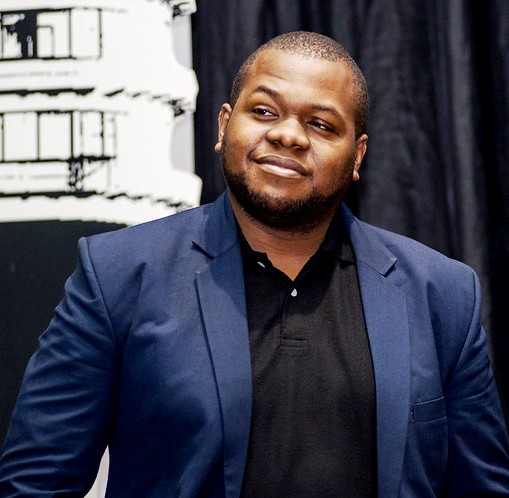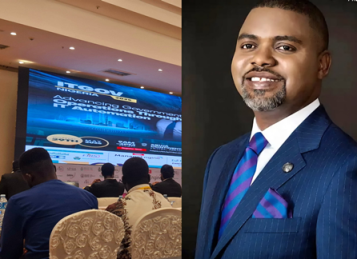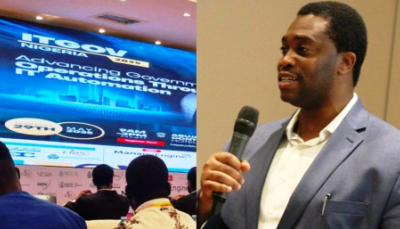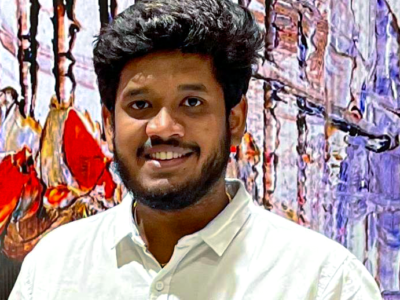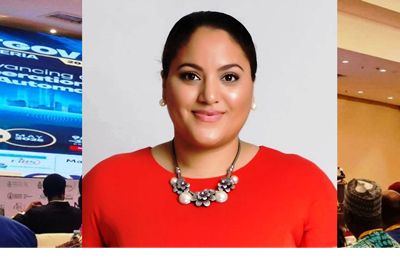Last year, Sahara Sparks was a blast. The annual tech event has evolved to become a major platform to link startups, young entrepreneurs to investors and potential partners. Founder, JumanneRajabu Mtambalike shares this testimonial: “We have already worked with 20 different investors, 239 startup companies, reached out to over 30 regional and global organizations that support entrepreneurship and build a community of over 1200 people.” This year, Sahara Sparks is partnering AfriLabs to deepen the conversation on expanding the value of Africa’s tech ecosystem. Mtambalike shares his vision on Africa’s innovation and tech entrepreneurship ecosystem; why Africa is still lagging behind on utilizing data to make strategic decisions; Why Africa needs to invest on building stable innovation ecosystems, why collaboration among key ecosystem stakeholders on the continent is crucial to creating more resources and larger markets for startups. Mtambalike represents a new breed of Africans seeking to foster the continent’s prosperity round the theme of economic liberation from innovation and collaboration. He tells IT Edge News, “If we succeed with what we are doing now, we will be the first African generation where by a startup based in Abuja, Nigeria will be operating successful in Dodoma, Tanzania.” This eTerview is anchored by Olusegun Oruame and Oluwatobi Opusunju.
What is the driving force behind organizing Sahara Sparks?
Sahara Sparks is one of the companies under Sahara Ventures. The broader mission of Sahara Ventures is to build stable innovation and technology entrepreneurship ecosystems in Africa one block at a time. Sahara Sparks is one of those blocks. We believe by running an innovation and technology entrepreneurship event we are creating a platform for the growth of African innovators, tech enthusiasts and startups founders. Our mission is to see more venture investment, trending technologies and innovations are emerging from the African continent, and these exciting stories are being shared, reflected and supported by local, regional and global ecosystems.
“Africa needs to invest on building stable innovation ecosystems, ecosystems that support the growth of local innovators and entrepreneurs.”
This year’s Sahara Sparks is focusing on data development/ revolution in Africa. How would you describe the data development/ revolution scenario in Africa vis-a-vis other climes?
Africa innovation and technology entrepreneurship ecosystem faces a big data challenge. Data gaps have limited breakthrough innovations to emerge from the African continent. Startups and businesses are struggling to adapt innovative strategic business models due to lack of reliable information. Africa like the rest of the world is living in the Data Age whereby everything is controlled by data. Sahara Sparks saw this as a challenge and realize the need to have continent level dialogue on the issue of data. Data plays a crucial role in all other sectors which are crucial for the development of the continent: health sector, financial sector, education sector, etc. Data is everywhere, every day, the world creates 2.5 quintillion bytes of data — so much that 90% of the data in the world today were created in the last two years alone. Africa is still lagging behind on utilizing data to make strategic decision for the socioeconomic development of the continent.
“Data plays a crucial role … for the development of the continent …. Africa is still lagging behind on utilizing data to make strategic decision for the socioeconomic development of the continent.”
How can African countries better leverage the opportunities that data presents for socio-economic development?
Data plays a crucial role in the development of any community. Data can help the African continent on planning and utilization of its readily available resources including human and natural resources. Africa population is the youngest global population and Africa natural resource reserves are among the largest in the world. Through the adoption of data and making facts based decisions Africa can be able to utilize effectively its resource and plan well for the future of the continent. Agriculture data, climate data, communication data, transport data, financial data, etc, are key for the development of the African continent. It will help the continent on making informed decisions and take strategic actions. Data will ease the adaptability of new technologies, emerging of new innovative business models and creating future jobs to promote the growth of Africa’s digital economy.

Mtambalike: “Data can help the African continent on planning and utilization of its readily available resources”
Innovation in Africa is still largely uncultivated with the right environment. How can we in Africa change this narrative?
For the growth of the innovation sector (knowledge economy), Africa needs to invest on building stable innovation ecosystems, ecosystems that support the growth of local innovators and entrepreneurs. High quality universities (3rd generation universities), smart programmes (accelerators and incubators), startup communities, investment networks, research and development agencies, events and meetups, etc. You need all these components to work together if we are to realize the knowledgeable communities that can embrace innovations, technology growth and entrepreneurship.
In what ways do you think we can better engage or use data to understand our innovation ecosystem and develop better policies?
Data can be embedded at the core of our design processes, when we design interventions and activities that support the growth of Africa’s innovation ecosystem. Data can be used to inform us what is needed and at what scale. For example while there are over 300 coworking spaces across the continent to support young entrepreneurs. There is very small number of angel investment or venture capital to provide financial support for new emerging businesses in the continent. Using data can help us to identify strategic interventions to inform our policies and plans.
“The broader mission of Sahara Ventures is to build stable innovation and technology entrepreneurship ecosystems in Africa…. We believe by running an innovation and technology entrepreneurship event we are creating a platform for the growth of African innovators, tech enthusiasts and startups founders.”
Apart from South Africa and Mauritius who made it to the first 65 innovating countries in the Global Innovation Index rankings for 2017, other African countries are seen trailing far behind the rest of the world. Do you see more African countries moving up the ladder say in the next three years? Are there potentials to bootstrap and compete with the rest of the world on the innovation chart?
Africa is growing very fast. I see countries from the continent climbing the radar even though there is a lot that needs to be done. Governments need to work more with the private sectors and provide conducive environment for the growth of new trending technologies and emerging innovative business models. We need to be very flexible with our regulations and policies when it comes to adopting new innovations. We need to invest more on support mechanisms, technology transfer and research commercialization. In 2017, African tech startups raised funding in excess of US$195 million, up 51 percent compared to 2016. There is a chance to go even further and attract more investment in our ecosystems.
“Startups and businesses are struggling to adapt innovative strategic business models due to lack of reliable information.”
While startups are the actual drivers of innovation and economic development, funding is majorly most of these guys’ obstacle or challenge. How do you think this can be tackled in Africa?
I think funding is not a problem when you consider the amount of funds that has been attracted by African startups. What we need to do, especially incubators and accelerators is to try to build and encourage growth of investable startups. Startups with clear business models and a promise to scale. We need to have competent startup teams. Also, we need to build our own local angel networks to support with seed stage funding before later stage funding. African investors need to invest more in local startups to attract interest of international investment agencies.
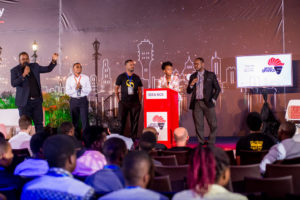
Mtambalike at Sahara Sparks 2017. “By running an innovation and technology entrepreneurship event we are creating a platform for the growth of African innovators, tech enthusiasts and startups founders.”
So far, with the Sahara Sparks platform, how have you been able to address the different issues affecting the startup ecosystem in Africa?
Sahara Sparks is part of the broader vision of Sahara Ventures which is to build stable Africa’s innovation and technology entrepreneurship ecosystem one block at a time. Sahara Sparks is one of those blocks. It is a platform to link startups and young entrepreneurs to investors and potential partners who could help them scale their businesses to the next level. Since we started the event, we have already worked with 20 different investors, 239 startup companies, reached out to over 30 regional and global organizations that support entrepreneurship and build a community of over 1200 people. As a platform we have been able to showcase products from startups, link startups to investors, spark conversations that promote growth of the ecosystem and attract more interest to African startup ecosystem.
“Funding is not a problem when you consider the amount of funds that has been attracted by African startups. What we need to do, especially incubators and accelerators is to try to build and encourage growth of investable startups.”
In your views, what does collaborations amongst tech hubs and other forms of technology clusters in Africa portends for the continent?
Collaborations among key ecosystem stakeholders is the sign that our ecosystem is growing and people have started to understand the importance of working together and supporting each other. Like what the Late Mwalimu Nyerere used to say the weak needs to work together and when the strong does that, it is sign of maturity. Africa’s startups ecosystems are very young and they need to grow together. If they grow together they will create more resources for startups; larger markets, multiple sources of funds and a pool of talented founders from different countries. Africa’s intra Africa trade is still very low. If we succeed with what we are doing now, we will be the first African generation where by a startup based in Abuja, Nigeria will be operating successful in Dodoma, Tanzania.
Sahara Sparks will be partnering AfriLabs for this year’s event, what should we be expecting?
A lot of fun, a lot of business deals closed, a lot of work and a lot of learning. We are expecting to have an exciting event. We will share experience and have conversations that decide the future of innovation, technology and entrepreneurship in the African continent. As you already know the interest is on data and innovation. We will explore the role of data for the social economic growth of the continent, opportunities around data and trending technologies; AI, Robotics, IoT, Big Data, Blockchains, and the fourth industrial revolution, etc.


